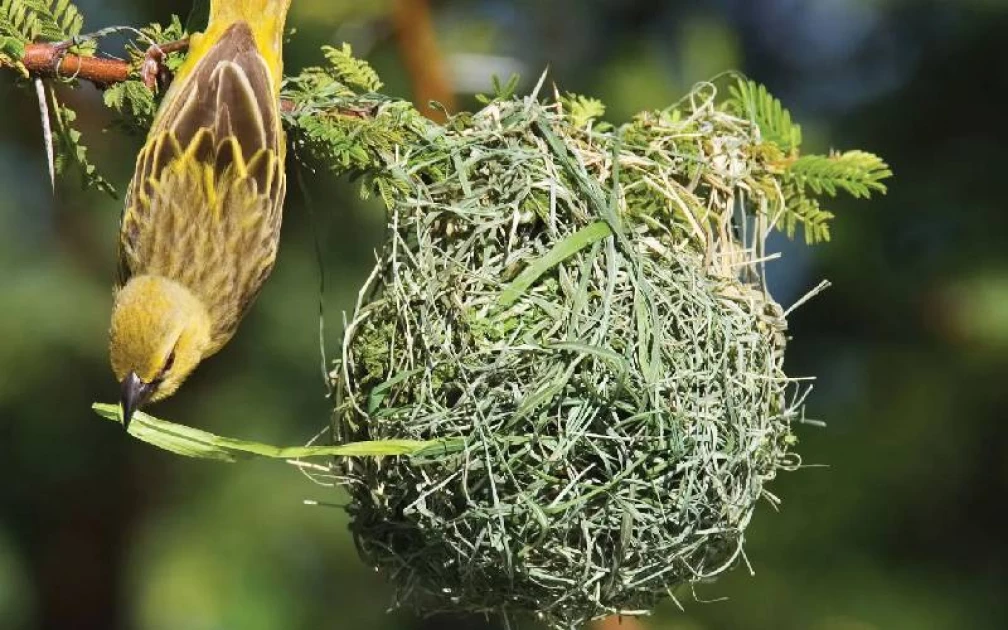Wananchi Opinion: Let's learn money behaviour from weaver birds


Audio By Vocalize
Weaver birds, known for their intricate nests and industrious habits, offer compelling economic lessons that humans can learn from.
These small birds, often overlooked in the grand scheme of nature, exhibit behaviours that mirror essential economic principles such as planning, resource management, investment, cooperation, and risk mitigation.
By observing their way of life, one can gain valuable insights into how societies and individuals might better navigate the economic landscape.
One of the most striking lessons from weaver birds is the importance of long-term planning. These birds do not build their nests haphazardly or in haste.
They scout for suitable locations, often selecting branches that hang over water or are surrounded by thorns to deter predators.
This careful site selection is similar to how humans should approach investment or business location decisions.
Just as a poor site can ruin a business, a nest placed without foresight can expose the bird’s offspring to danger.
The weaver bird teaches that where and how resources are allocated today can determine survival and prosperity tomorrow.
Resourcefulness is another trait that stands out. Weaver birds gather grasses, leaves, and twigs, often traveling great distances to find materials that meet their specifications.
They use these to construct nests with precise weaves, strong enough to withstand wind and rain.
This reflects the principle of using available resources effectively. Humans, especially in economically challenging environments, are reminded that scarcity should not lead to despair but should instead inspire innovation and efficient use of what is at hand.
Whether it is in rural entrepreneurship, urban housing, or small-scale farming, the ability to maximise limited resources often defines success.
Weaver birds also understand the value of specialisation and division of labor. In many species, the male constructs the nest to attract a mate.
This act is not just for shelter but serves as a signal of his fitness and commitment. If the nest is poorly built, the female will reject it and the male must start over.
This reflects an investment strategy, where time and effort are capital.
The better the investment, the higher the return in terms of reproductive success. It also shows how quality assurance plays a vital role in any productive system.
A substandard product, whether in manufacturing or service delivery, will not attract customers or clients.
Their behaviour also hints at the significance of saving and deferred gratification. A weaver bird spends several days, sometimes weeks, weaving a nest before any tangible benefit is realised. There is no immediate reward. This mirrors the concept of saving money or investing in education.
Many economic benefits are not instant. They come after consistent effort and sacrifice. Weaver birds remind us that patience and endurance are necessary virtues in any economic pursuit.
Another important lesson is risk management. Weaver birds build multiple nests not just as a display of skill but as a strategy to mitigate the risk of failure.
Not every nest will be accepted or survive the elements, but by building several, they increase the odds of success. This is akin to diversifying one’s investments or income streams.
Relying on a single source of income or putting all financial hopes into one venture can be risky.
Spreading efforts across multiple options cushions the blow if one path fails.
Weaver birds also live in colonies, often with dozens of nests in a single tree. This shows a subtle but important economic principle: the power of networks and shared resources.
While each bird builds its own nest, being close to others offers security and social advantages. In human terms, this is seen in cooperative societies, savings groups, and community markets. These shared economic structures allow individuals to leverage collective strength for mutual benefit.
By studying weaver birds, it becomes clear that economic wisdom is not reserved for textbooks or financial experts. Nature is rich with examples of strategic planning, diligent labour, prudent investment, and communal support. These birds, though driven by instinct rather than intellect, model economic behaviours that humans would do well to emulate.
Their nests are more than homes. They are monuments to foresight, effort, and survival in a competitive world.
Weaver birds show us that success is rarely accidental. It is often the result of deliberate choices, persistent action, and an unwavering commitment to future stability.
Mr. Abol Kings is a personal finance advisor


Leave a Comment